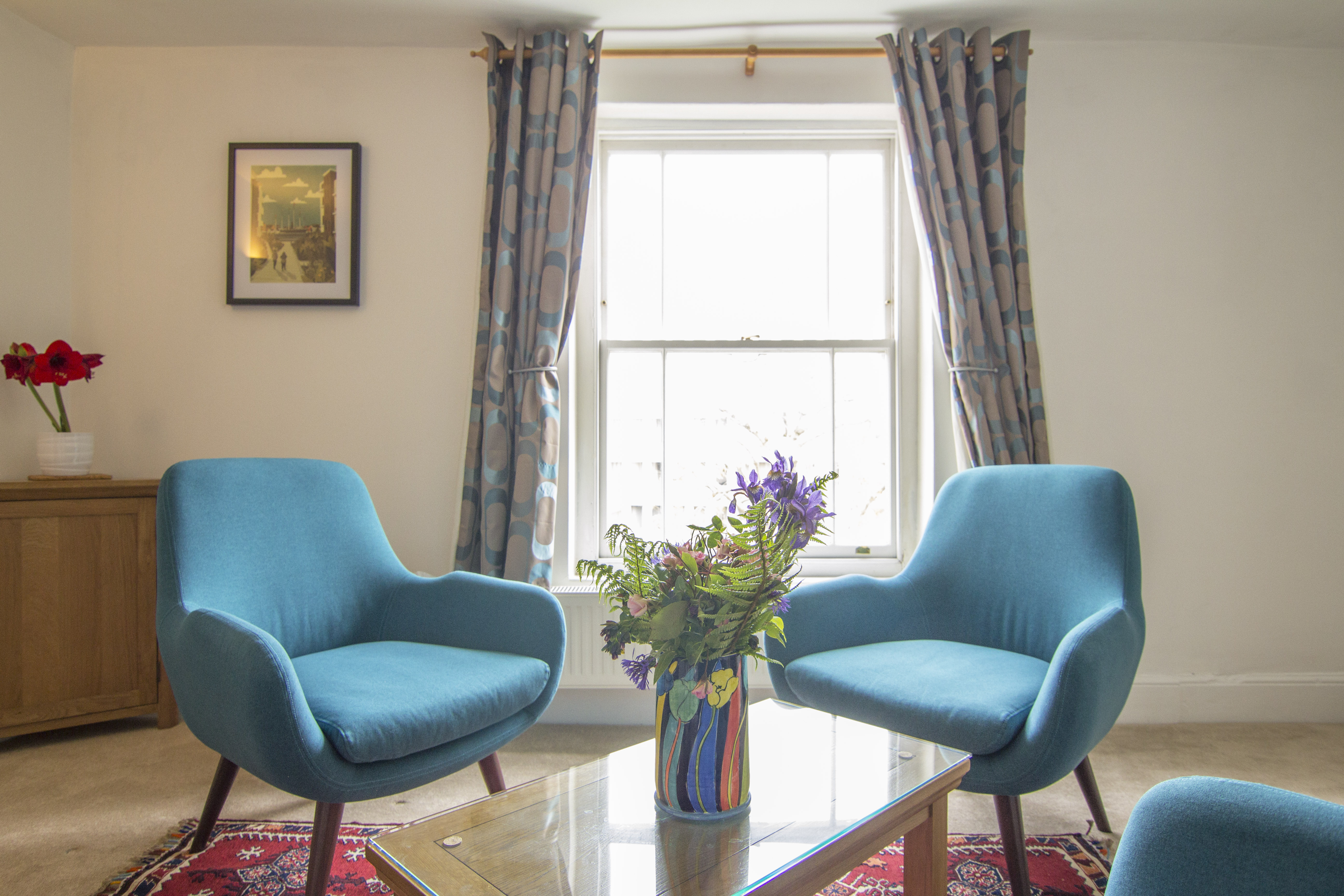The independent professionals who use our consulting rooms do so because they provide an ideal place to talk and get problems sorted.
Because they’re independent they manage all their affairs (such as booking etc.) separately so if you want to contact them please do so directly as we don’t have access to their diaries. You can find their contact details on their website entry (see Our Therapists) but please bear in mind that they’re generally pretty busy so if you ring them you may need to leave a message and wait for them to get back to you.
All of the practitioners are qualified (or in formal training and at a stage where they’re licensed to practise by their supervisor or regulatory body). They’re insured and members of a professional organisation that regulates them and their training and we check that’s the case when they apply to work from our rooms. It’s worth pointing out that it would be inappropriate to endorse or recommend any of our people. The only person who can really be honest about what’s best for you at this earliest stage is you, not us! What you need to do is choose a therapist and a therapy and here’s how.
How to choose a therapy
The therapists list the techniques they use and in the internet age it’s so easy to find out what the various initials stand for and become an instant expert that we won’t list them here. However, what you want to be looking for is something that doesn’t take too long and which you think would be a good match for you.
Everyone’s mental health is completely individual; no two cases of depression or anxiety, for example, are the same so it’s not surprising to find that people respond differently to different techniques or methods of dealing with it.
As an example, Cognitive Behaviour Therapy (CBT) is widely used at the moment (and if you’re being referred it may be the only option) because it has a good evidence base and it’s relatively simple to deliver and evaluate. That’s great for a lot of people and a lot of conditions but not everybody will find it just right for them or their condition, so don’t discount other ways and methods.
As before, people are individual and so are our problems so it follows that we’ll respond and relate individually to methods and modalities.
How To Choose a Therapist
Look at the therapists and run through what they say about themselves. Pay attention to the things that might affect how you’d react with them.
For example, their gender might be important to you; also, pay attention to their areas of expertise and to their life experiences and whether they seem scientific or more holistic and how that matches the sort of person you are.
See if you find yourself drawn to one, two, three or more people. It’s good to do it this way because despite all the psychobabble what’s important in getting a really good outcome is a good and positive relationship with the person you’re talking to.
When you’ve got your shortlist get in touch. Have a chat over the phone or send an email; you can explain the basics so you can firm-up your impression of how this might work. Ask about an introductory appointment too and it’ll be unlikely that you’ll find your earlier impressions were wrong. Having said all that it’s still true to say that all the practitioners who use our rooms are skilled professionals; they can all help.



